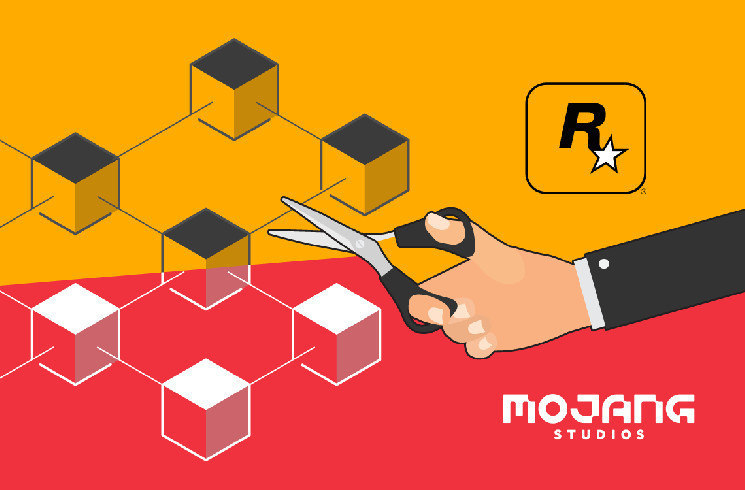Blockchain technology and non-fungible tokens (NFTs) are slowly creeping into mainstream games, but the use of this technology has been met with some hesitancy from game developers.
However, some industry experts believe that it is only a matter of time before they warm up to the idea. Blockchain media outlet Cointelegraph spoke to several gaming executives, and they all agreed that once regulatory frameworks are in place to guarantee player safety, mainstream studios will start embracing blockchain tech.
Minecraft and GTA on the defensive
In July 2020, Minecraft developer Mojang Studios announced a ban on NFTs and blockchain technology. Later, Rockstar Games updated its website, stating that fan-operated servers for Grand Theft Auto V can no longer utilize crypto assets, specifically NFTs. These actions are viewed by some as a sign that mainstream studios are skeptical about the benefits and risks of blockchain tech.
Walter Lee, gaming growth lead at BNB Chain, believes that once there is more education and regulation around blockchain tech, mainstream studios will warm up to the technology.
Lee argues that the ban on NFTs is more related to NFT activities than general blockchain tech. He says that there is still a lack of education and regulation around Web3, and some companies are still skeptical about the benefits and scams that can often be associated with it.
Lee believes that player demand will ultimately be the deciding factor for blockchain tech in mainstream games. If there becomes an increased demand from players for blockchain integrations, mainstream studios will likely revisit their policies.
Grant Haseley, the executive director at mobile and Web3 game development company Wagyu Games, believes that one success story is all that is needed to spark mainstream adoption.
Haseley argues that AAA studios will change their minds once they start yielding true market share to Web3 games.
The fear of undercutting the current business model
Haseley notes that mainstream hesitancy around adoption is out of fear it will undercut the current business model of “the consumer strictly paying for entertainment.”
He notes that the mobile gaming market has breached $100 billion and is trending upward, and if studios can maintain profitability without changing their model, they are unlikely to consider something radical that could have lasting effects on their consumer base.
Justin Hulog, chief studio officer at Immutable Games Studio, explains that NFTs and crypto fundamentally transfer ownership of digital assets from companies to players, making it unappealing for mainstream adoption. According to Hulog, both Minecraft and GTA V are motivated to retain control over their in-game economies for financial reasons.
While there is still a lot of hesitancy around blockchain integration in mainstream games, it is clear that this technology has the potential to revolutionize the gaming industry.
Although regulatory frameworks are currently lacking, players and gaming enthusiasts are showing an increasing interest in blockchain technology, and as more education and regulation becomes available, it’s likely that more mainstream studios will warm up to the idea.
 cryptopolitan.com
cryptopolitan.com
